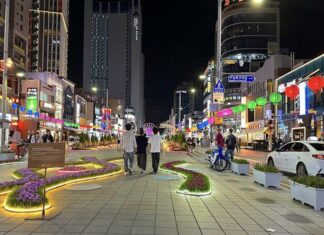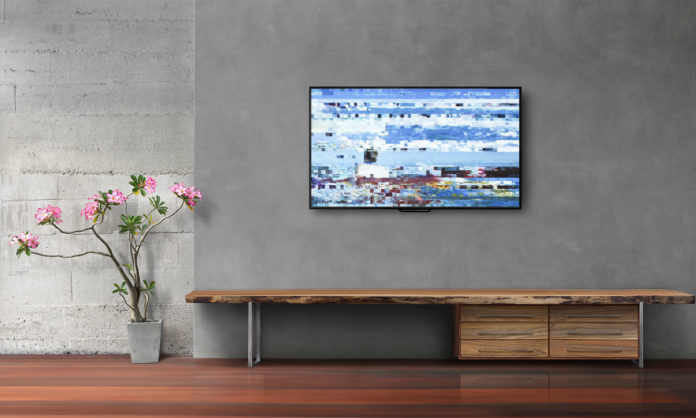
The fact that tall objects such as trees, buildings, towers, etc. can obstruct TV signal is a piece of common knowledge. Sometimes this can be the reason why some people decide that purchasing a TV antenna is not the right thing for them, and opt for subscribing to cable TV. On the other hand, if they are not aware of this, installation companies can point out the potential problems.
Still, what about the weather conditions? Can these affect the TV reception? If the answer to this question is affirmative, our next one is how exactly? This is going to be the main focus of our article. We are going to discuss different conditions and tell you how they can interfere with the TV signal.
What happens to our TV?
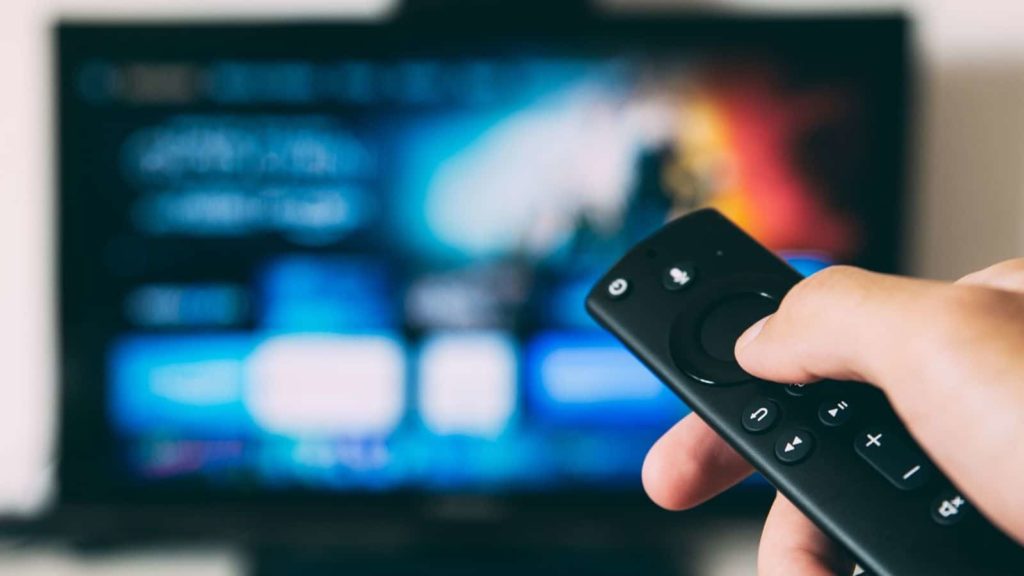
As it is to be expected, the answer to the question of whether atmospheric conditions can affect the TV signal is yes. However, keep in mind that chances of this occurring nowadays, when we have digital TV are significantly lower than 10 years ago, when we used analog TV.
In the past, when a TV signal was obstructed by weather conditions, we would see the so-called ‘ghosting’, static or blurred picture. This is not the case today. When it comes to today’s digital world and TVs we would probably be presented with a blank screen and there wouldn’t be anything on it until the issue gets fixed.
Why does this happen? Well, the simplest answer is that our TVs today are indeed smart. When it receives the signal from the nearest tower, it determines the quality of the signal. If there is a problem i.e. if it is not of top quality, the TV simply won’t display it all.
If this seems like reason enough to invest in a smart TV and are wondering about the installation process, you can learn more on this website.
Rain
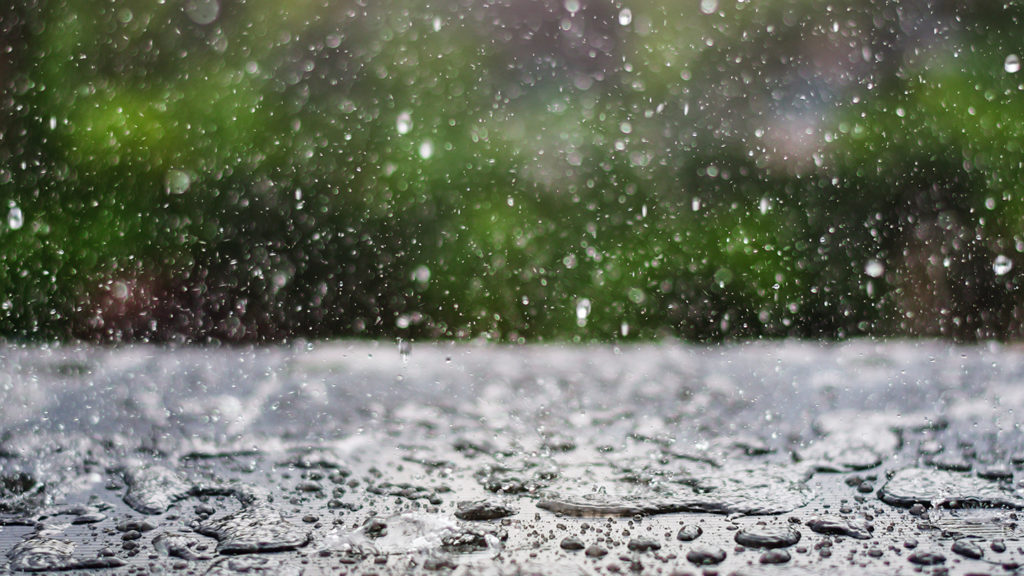
The interference usually happens because of harsh weather conditions, and the first one that we are going to discuss is rain. Naturally, in most cases, nothing happens to our TV when it rains. However, when heavy rainfall occurs, it can disturb the TV signal.
What happens is that raindrops can absorb power from the signal, literally breaking it and scattering it around and therefore, causing problems. This means that they get damaged i.e. they are not complete, and also, they can move in different directions.
Cold weather
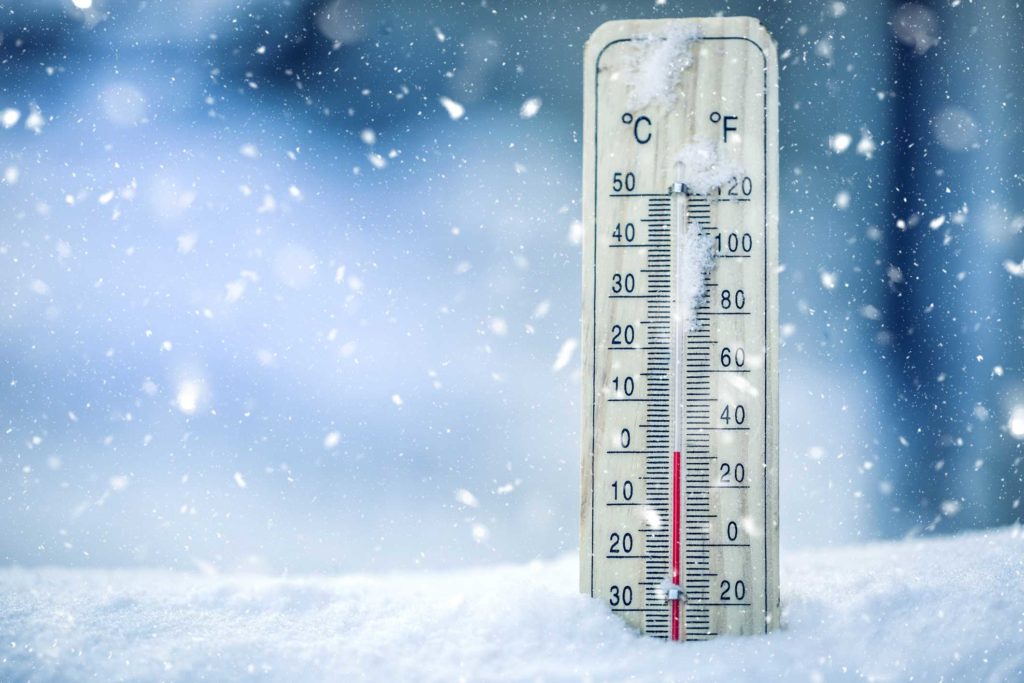
As you can imagine, just because it gets cold soon it doesn’t mean that your TV signal will be affected in any way. The same thing goes for heat and other weather conditions. However, there are some occurrences with air pressure that can do some damage.
In normal conditions, when air moves from earth to the troposphere, it gradually gets colder, meaning that there is no sudden change in the temperature. However, this layer of air can sometimes get trapped between two warm ones (one of the earth and other just above it).
If this layer is trapped around the TV transmitters, it affects the reception by changing their direction and sending them far away. This occurrence is called propagation and what actually happens is that signals from other towers can disrupt and affect those that are sent from your tower, disturbing the TV reception.
Heat
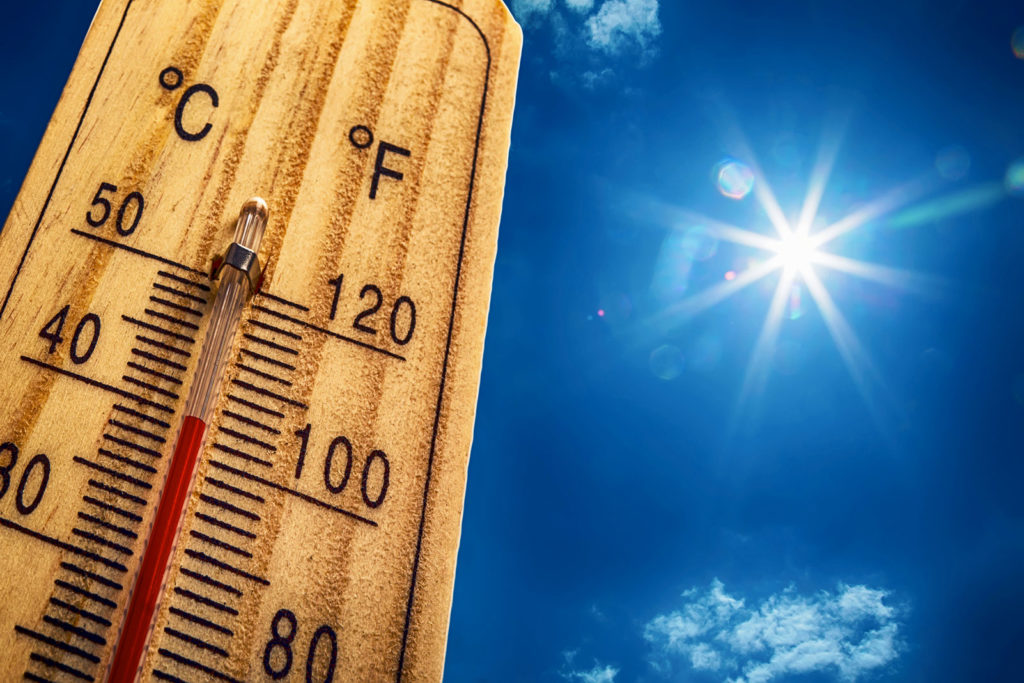
During hot, summer months, the high-pressure condition can occur and occasionally it can cause some problems. Similarly, to the layer of cold air that gets trapped, as we have already explained, the same thing can happen to the warm layer.
When this happens and the natural border between these two layers occurs, the signal once again can travel a long way. If there is a tower or a station at the same direct frequency as the one that transmits the signal to your household, the signals from the first one can make an obstruction, regardless of the distances between the two stations.
This temperature inversion usually happens on those summer nights when air pressure is really high, and there is no wind.
Storms
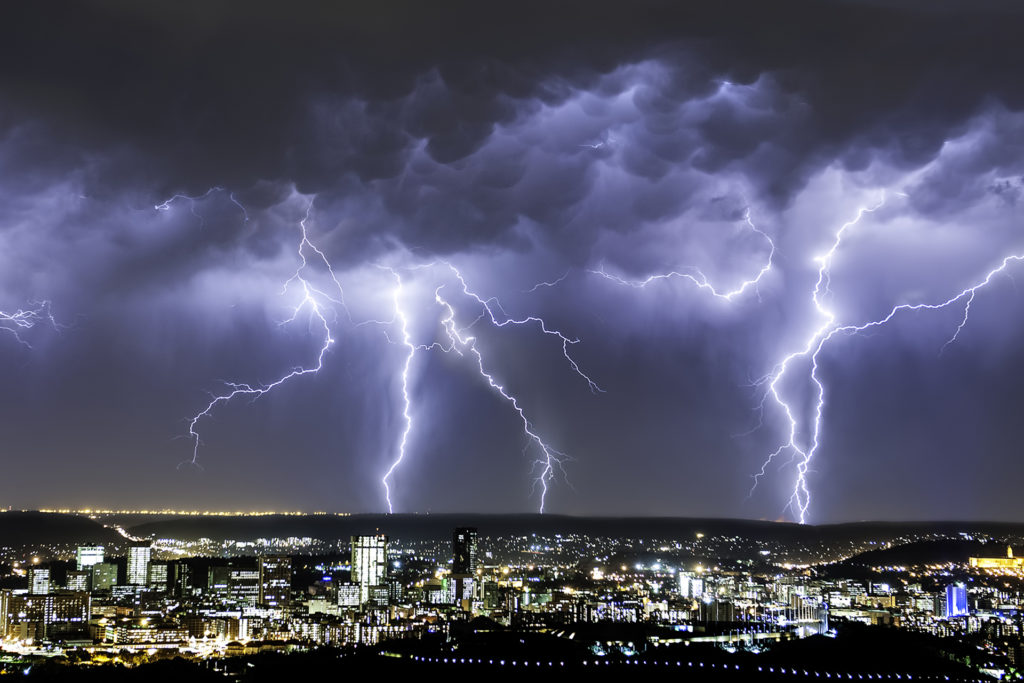
We can all agree that the storm is a known cause of bad TV reception. During a storm, lightning can strike or a change might occur in static pressure. Yes, the reception can be interrupted when this happens, but you should be more concerned about your TV set. If it is not grounded properly, the electricity can completely destroy it. If this happens, you will have no other choice but to get a new one.
Wind
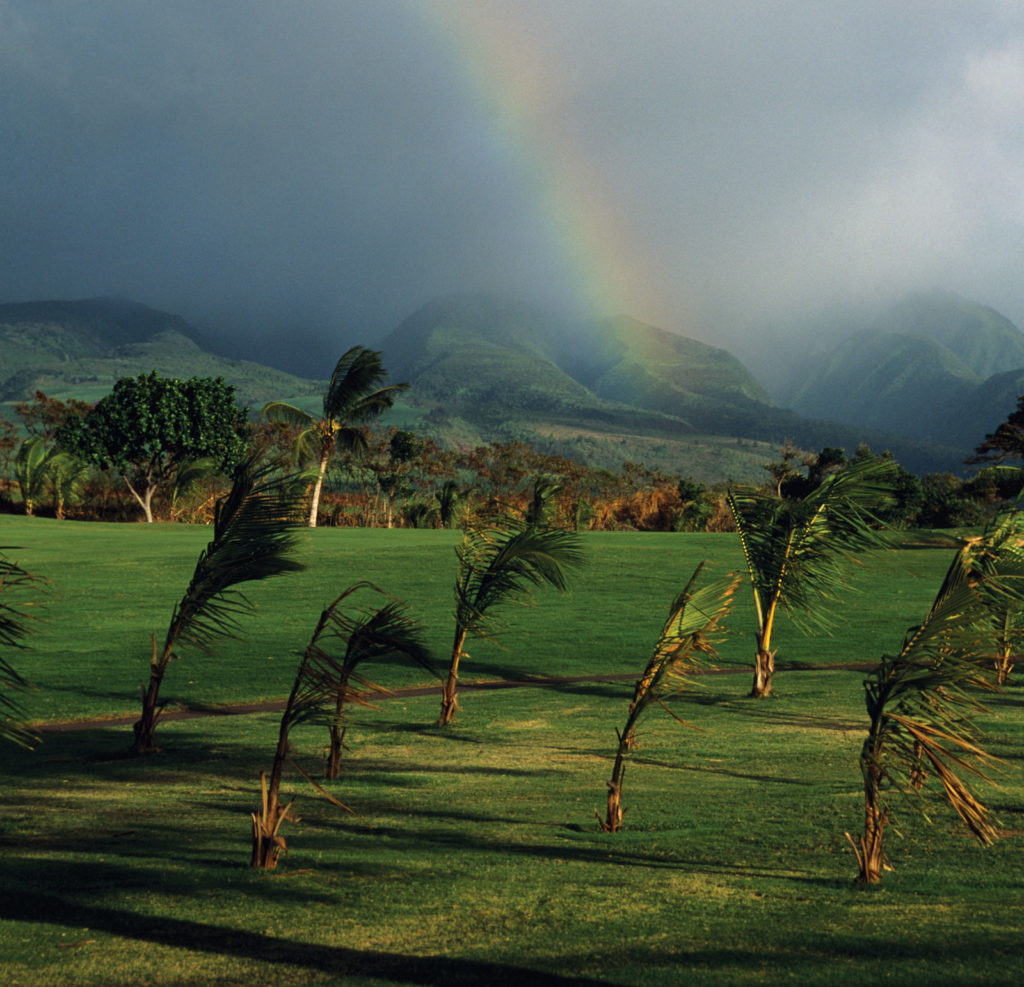
When there’s a storm there’s usually wind. As you can imagine, the wind cannot alter the reception, but it can cause two problems. Firstly, if the antenna is not properly attached i.e. it is loose, it can sway, and receiving the signal will be that much harder.
Secondly, just like the wind can move the antenna it can also move other objects that are on the direct line between the station and the antenna.
Can this be stopped?
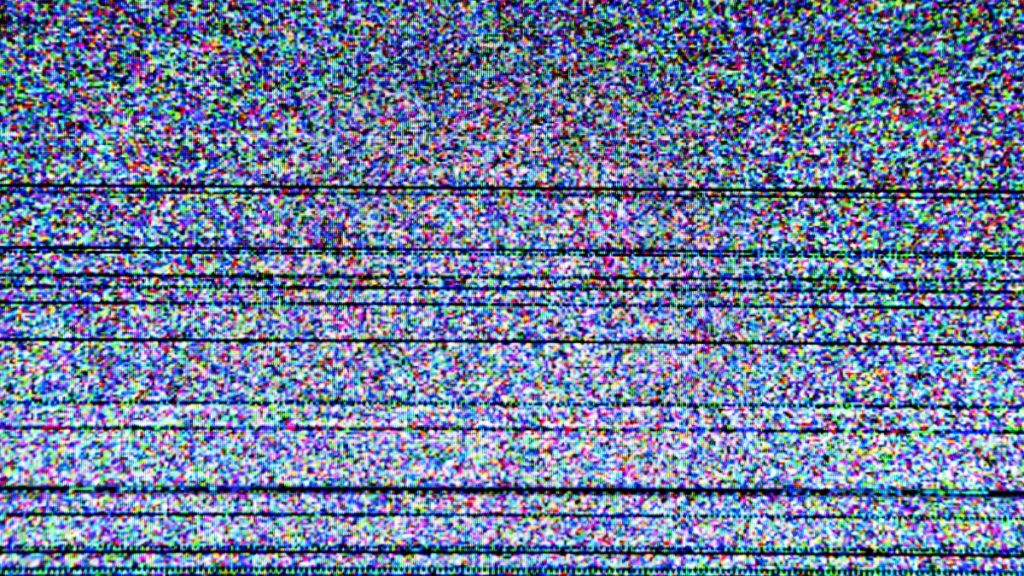
As you can expect, the answer to this question is no. None of us can do anything to alter weather conditions. We cannot prevent the rain or show and we definitely can’t change the air pressure. Yes, we agree, these interruptions of the reception can be quite annoying. What can you do during bad weather if not watch TV? Nevertheless, all one can do is to wait for those atmospheric conditions to pass, and the TV reception will be normal once everything calms down.
Once pieces of advice, you shouldn’t make any modifications to your TV or antenna because you can cause some disruption and the signal will not be back to normal after the storm calms down. In this case, you would either have to manually program the TV on your own or if you do not possess the knowledge of how to it, you would have to hire an installation company. Even though they can fix whatever problem you are experiencing, their fee might be an additional unnecessary cost that you would have to pay.




